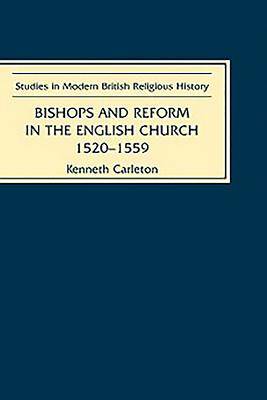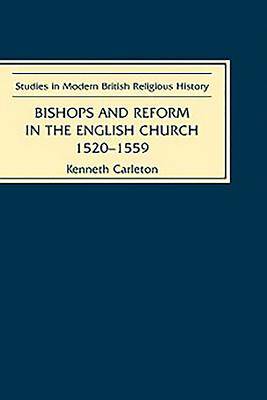
- Afhalen na 1 uur in een winkel met voorraad
- Gratis thuislevering in België vanaf € 30
- Ruim aanbod met 7 miljoen producten
- Afhalen na 1 uur in een winkel met voorraad
- Gratis thuislevering in België vanaf € 30
- Ruim aanbod met 7 miljoen producten
Zoeken
Omschrijving
The role of bishops in the process of Reformation in the 16th century, studied from their surviving writings and contemporary discussion. The English bishops played a crucial role in the process of Reformation in the sixteenth century, from the first arrival of continental Reformed thought to the virtual extinction of the office in 1559. This work has at its core the bishops' own understanding of the episcopate, drawn from their surviving writings and other contemporary discussions; such a study is key to understanding what became of the English Church of the middle ages and what it was to become under Elizabeth. Carleton examines the interplay between bishop and king, the episcopate in the context of other orders, and the social context of the office; he studies episcopal activity in key areas such as preaching, ordaining, and opposing heresy; and he notes the influence of the models which the bishops themselves set up as ideals, most notably Christ himself as the ideal bishop. The backgrounds of the bishops are set out in the appendix.
Specificaties
Betrokkenen
- Auteur(s):
- Uitgeverij:
Inhoud
- Aantal bladzijden:
- 236
- Taal:
- Engels
- Reeks:
- Reeksnummer:
- nr. 3
Eigenschappen
- Productcode (EAN):
- 9780851158167
- Verschijningsdatum:
- 14/06/2001
- Uitvoering:
- Hardcover
- Formaat:
- Genaaid
- Afmetingen:
- 160 mm x 243 mm
- Gewicht:
- 675 g

Alleen bij Standaard Boekhandel
+ 354 punten op je klantenkaart van Standaard Boekhandel
Beoordelingen
We publiceren alleen reviews die voldoen aan de voorwaarden voor reviews. Bekijk onze voorwaarden voor reviews.








